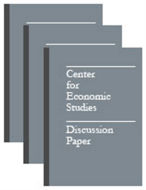Technical Inefficiency And Productive Decline In The U.S. Interstate Natural Gas Pipeline Industry Under The Natural Gas Policy Act
Technical Inefficiency And Productive Decline In The U.S. Interstate Natural Gas Pipeline Industry Under The Natural Gas Policy Act
Abstract
The U.S. natural gas industry has undergone substantial change since the enactment of the Natural Gas Policy Act of 1978. Although the major focus of the NGPA was to initiate partial and gradual price deregulation of natural gas at the well-head, the interstate transmission industry was profoundly affected by changes in the relative prices of competing fuels and contractual relationships among producers, transporters, distributors, and end-users. This paper assesses the impact of the NGPA on the technical efficiency and productivity of fourteen interstate natural gas transmission firms for the period 1978-1985. We focus on the distortionary effects that resulted in the industry during a period in which changes in regulatory policy could neither anticipate changing market conditions nor rapidly adjust to those changes. Two alternative estimating methodologies, stochastic frontier production analysis and data envelopment analysis, are used to measure the firm-specific and temporal distortionary effects. Concordant findings from these alternative methodologies suggest a pervasive pattern of declining technical efficiency in the industry during the period in which this major regulatory intervention was introduced and implemented. The representative firms experience an average annual decline in efficiency of .55 percent over the sample period. In addition, it appears that the industry suffered a decline in productivity during the sample period, averaging -1.18 percent annually.




